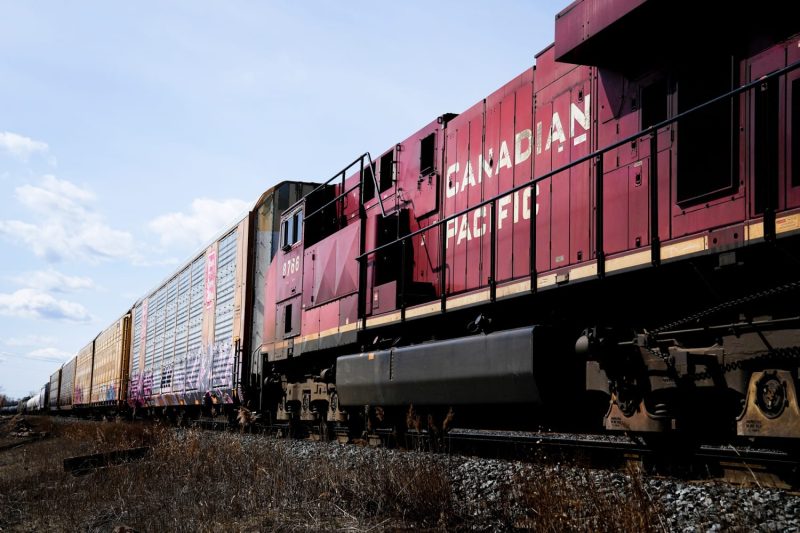The possible work stoppage at Canada’s two largest railroads could disrupt the U.S. supply chain, creating significant challenges for businesses and consumers reliant on the efficient movement of goods between the two countries. Canadian Pacific Railway Ltd. and Canadian National Railway Co. are facing labor strikes, which could potentially halt rail operations and impact cross-border trade.
The U.S. supply chain heavily depends on the seamless transportation of goods between Canada and the United States via rail. Any disruption in the rail service could lead to delays in the delivery of essential products, raw materials, and finished goods, affecting various industries such as automotive, agriculture, manufacturing, and retail.
One of the critical concerns arising from a potential work stoppage is the impact on the automotive sector. The automotive industry relies heavily on just-in-time inventory systems, where components and parts are delivered to production facilities precisely when needed. Any delay in the transportation of these components could result in costly production shutdowns and reduced output, affecting both automakers and their suppliers on both sides of the border.
Moreover, the agriculture sector could also face significant challenges if rail services are disrupted. Canada is a major exporter of agricultural products to the U.S., including grains, meat, and dairy products. Any interruption in rail transportation could lead to spoilage of perishable goods, higher transportation costs, and reduced access to markets, impacting both Canadian farmers and U.S. consumers.
Manufacturing industries that rely on the timely delivery of raw materials and equipment from Canada could also be affected by a work stoppage at the Canadian railroads. Delays in the supply chain could disrupt production schedules, increase costs, and impact the competitiveness of businesses operating in both countries.
Furthermore, the retail sector, which depends on the timely delivery of goods and merchandise from Canada, could experience inventory shortages and delays in restocking products on shelves. This could result in lost sales, unhappy customers, and reduced profitability for retailers on both sides of the border.
In conclusion, a potential work stoppage at Canada’s two largest railroads has the potential to disrupt the U.S. supply chain and create challenges for various industries reliant on the efficient movement of goods between the two countries. Businesses and policymakers need to closely monitor the situation and take proactive measures to mitigate the impact of any potential disruptions on cross-border trade and economic activities.


























